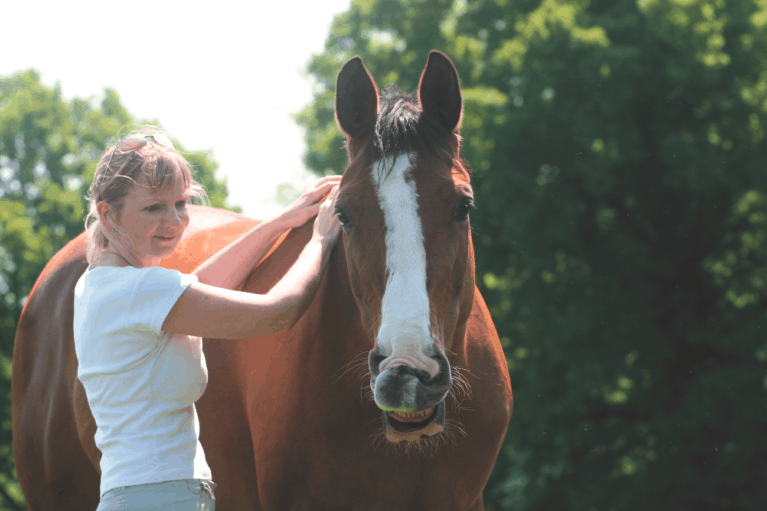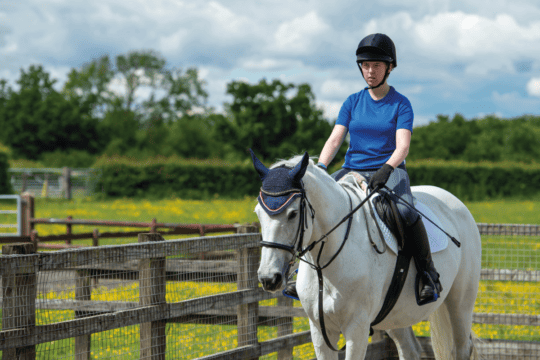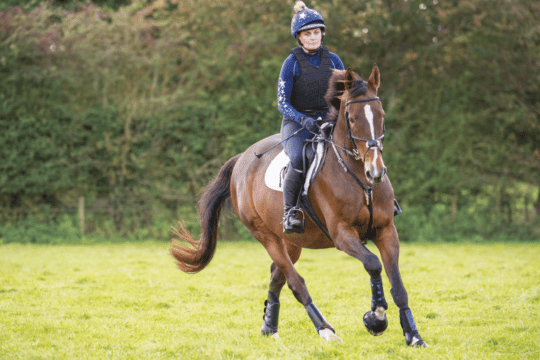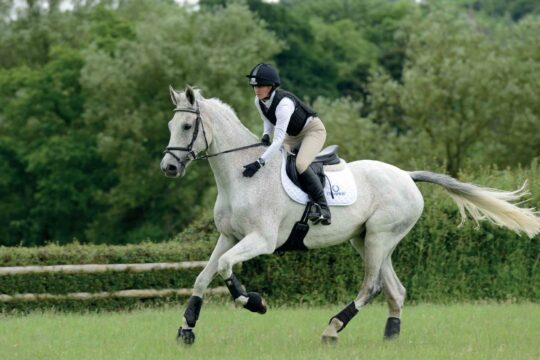Could your horse be happier? Whether he behaves like life’s offering him a raw deal or he seems blissfully content with his lot, there’s plenty you can do to help improve his quality of life and boost his happiness

We spend every spare moment working to make sure our beloved horses are happy and healthy – for example, giving them immaculate beds, cosy rugs and huge piles of hay to tuck into. But it’s easy to fall into the trap of thinking that the things that make us happy make them happy, too.
While the thought of being tucked up in a warm, comfy bed at night feels like bliss to you, does your horse feel the same? Or would he be happier wandering around his field with his mates? It helps to think about the three key things that horses need – plenty of forage to eat, access to companions and freedom to roam. Horses have all these things in their natural habitat, so it makes sense that providing them in their domesticated environment will make them feel more content.
Give some thought to your horse’s routine and whether it provides these basic needs – could he get out in the field more or perhaps buddy up with a companion rather than have individual turnout? Unfortunately, we’re often restricted by things such as livery rules or the amount of land available for grazing, but if it’s possible to make even small changes, your horse will feel the benefit.
Your horse is an individual
Although tweaking your horse’s lifestyle so it’s more natural is ideal, it’s worth bearing in mind that some horses have become so used to their domesticated routine, or negatively affected by living in this way, that these basic needs might fall outside their comfort zone.
For example, while being out 24/7 is most natural for horses and makes many feel more content, we all know at least one horse who paces the fence line to come in every evening and would hate to be left out all night. And there are some horses who just can’t tolerate others being near them.
In these cases, you need to think carefully about your horse as an individual, and what he needs and can cope with. It may be that with careful introduction and time to adjust, small changes towards a more natural lifestyle will have a positive effect on him. Equally, it may be that introducing some of these changes would cause him unnecessary stress, which would be unfair. You know your horse better than anyone else, so go with your gut feeling as to what’s right for him.
A bid for freedom
Horses roam many miles every day when living in the wild, so being confined to a stable is the complete opposite to how he’s evolved to live. Providing plenty of turnout will give him some down time to kick up his heels and unwind, and will really boost his mental health, helping to make him calmer, less reactive and easier to handle.
As well as being good for your horse psychologically, being turned out has numerous health benefits, too. It’s great for his musculoskeletal system, promoting correct development in young horses and keeping stiffness at bay in more mature ones. Many horses’ respiratory systems struggle to cope with the dusty environment of a stable, so lots of time outside will help to keep his airways clear and healthy. And the extra movement will help to promote good hoof growth, too.
There’s no question that turnout is incredibly important for your horse, but what if livery yard restrictions mean that increasing his turnout time isn’t possible or he’s been prescribed box rest so he can’t be turned out at all? Here are a few ideas to help you work around it…
- Provide a small, fenced off area outside your horse’s stable so he can leave the confines of his box and stand in the sun if he wants to. This is a great solution for horses who are confined to their stable for long periods of time, but it’s not suitable for all horses, as it could tempt some to jump out or push their way through the fencing. If you think your horse would cope well with this, make sure he only has access to it when you’re there to keep an eye on him and provide hay in the pen to distract him from looking for a way out.
- If time out of the stable is limited or non-existent, make sure he has a good view of the yard so he can see what’s going on to help prevent boredom. If it’s possible to have a stable that’s larger or more open, or one with a window at the back, it will help him feel less confined.
- If your horse has his own paddock, use electric fencing to create a maze with hay scattered throughout and water up one end, so he has to work his way around the maze to get to food and water. This will help to imitate his natural wandering and foraging behaviour, making full benefit of the time he’s out.
- Tie your horse up on the yard with a haynet for an hour for a change of scenery. He’ll be able to get a breath of fresh air, soak up the sun and watch the world go by, even if he can’t get out in the field.
- Spend time hand-walking and hand-grazing your horse to break up his day and get him out of his stable for a bit longer.
- If turnout is limited, ask your yard owner if you can turn him out in the school for a while to add to his allotted turnout time. Many yards have a booking system for the school, perhaps you could book out half an hour for turnout instead of riding. You could even do some gentle free-schooling to encourage him to move more.
- Boredom is a key problem with limited turnout, but working on groundwork and even trick training can help to keep him stimulated and tire him out mentally. Plus, the bonus is you’ll have a beautifully trained horse.
To find out more ways to make your horse happier, pick up a copy of May Horse&Rider. On sale 6 April 2017.















